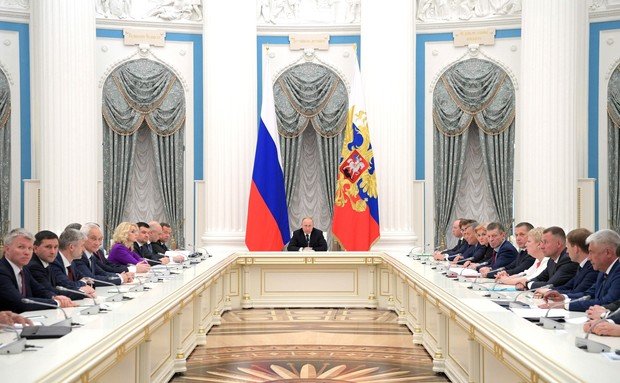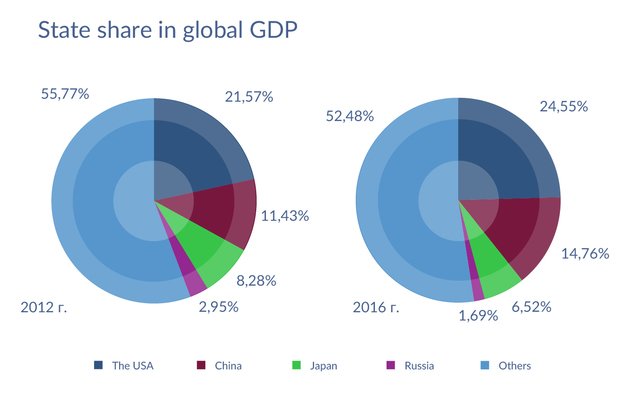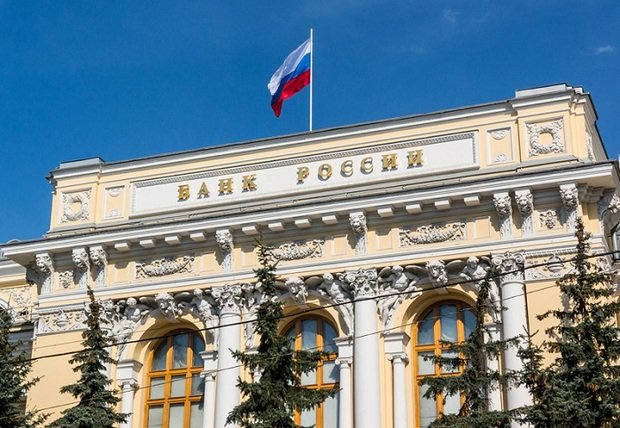IMF sceptics: Russia losing share in global GDP
The International Monetary Fund questions the prospects of Russian economic growth acceleration
The International Monetary Fund (IMF) has issued a forecast about Russia's economic growth, assessing it as unlikely. The main points — there is too much state in the economy, structural problems remain unresolved, and the country is losing its share in global GDP and will lag behind comparable economies in Eastern Europe. Experts interviewed by the Higher School of Economics also assessed the chances for growth acceleration in Russia. These conclusions run counter to the tasks set by President Vladimir Putin. Read more details in the material of Realnoe Vremya.
Blame and praise
The IMF European Department mission visited Moscow on May 14-23. Following this visit, the IMF issued a mission statement on the economic situation in Russia. A report will be prepared on the basis of the statement that will be submitted for discussion to the executive board of the Fund (preliminary judgements of IMF staff may not reflect the board's views).
The overall tone of the mission's statement, at first glance, seems rather positive. The main points are that over the past few years Russia has built a strong macroeconomic policy framework that has reduced uncertainty and helped to survive the effects of external shocks. The IMF positively assessed the Central Bank's work with inflation and the impact of the flexible exchange rate (the transition to it was completed in November 2014). The Fund also welcomes the plans to increase spending on health, education and infrastructure, which the new May Decrees of President Vladimir Putin provide.
In addition, the IMF called for the completion of banking sector resolution — the resonant reorganization of several large private banks in 2017 indicate the importance of this work. According to the statement, it is advisable for the Russian regulator to strengthen the supervision of banks, as well as to explain in more detail to the public the reasons for their decisions on rehabilitation.

Despite the recognition of certain merits of the Russian state bodies and the Central Bank, there is also a share of scepticism in the statement. This concerns the prospects for economic growth in the coming years, as well as bridging the income gap between Russia and developed countries. In other words, the IMF's conclusions state that without deep structural changes it will be impossible to accomplish some of the tasks set by Vladimir Putin. Let us remind you that the new May Decrees, among other things, provide that by 2024 Russia should enter the five largest economies in the world (more about this can be read here).
''Prospects remain low-promise''
The process of incomes level convergence in Russia with the level of income in the countries with developed economies has slowed down, and the share of Russia in global economy is declining. There is still a wide range of unresolved structural issues, and this is something that the authorities should focus on to achieve higher rates of economic growth, the mission stated in the report.
In recent years, the share of Russia in global economy has actually decreased, in contrast to the shares of the USA and China. In 2012, when the World Bank estimated global GDP at $74,89 trillion, Russia produced 2,95% of the overall volume. In 2016, the world economy reached $75,87 trillion, but Russia's share in it fell to 1,69%. At the same time, the share of the USA in 2012-2016, according to the World Bank, increased from 21,57% to 24,55%.
The IMF delegates note that Russia's economy is recovering from the recession of 2014-2015; however, the prospects for development remain poor. The report states that with the expected growth rates the country will lag behind comparable economies in Eastern Europe, and a convergence will not happen with the level of incomes, which is noted in the countries with developed economies. According to the IMF, a more dynamic growth is hampered by weak infrastructure development, aging of the population, excessive state participation in the economy, as well as governance and institutional shortcomings.

These points of the mission are also contrary to one of the tasks that Putin has set, namely, to reach the economic growth rate above the world one. In 2017, the Russian economy grew two and a half times slower than the global economy (the growth in Russia was 1,5%). This year, according to the International Monetary Fund forecasts, the growth will accelerate, but not significantly — up to 1,7%. At the same time, the IMF forecasts a 3,9% growth in the global economy in 2018-2019.
It is proposed to solve the problem of sluggish growth by increasing productivity, pension reform (it can smooth out the demographic failure — ''at least temporarily''), trade integration and export diversification. The IMF also advises to denationalize property (especially in the banking sector) and draws attention to geopolitical tensions, which inhibits the flow of private investments.
A and B
Not only the IMF has doubts about a rapid growth of the Russian economy. On May 22, the Higher School of Economics Development Centre published a consensus forecast on GDP dynamics in 2018-2024. The forecast was made on the basis of experts' surveys from 22 Russian and foreign companies and analytical institutes (Alfa-Bank, Sberbank SIB, Morgan Stanley, ING Bank, UBS, etc.).
''The essence of the macroeconomic scenario, expected by consensus forecasts, can be expressed in two short phrases: a) the Bank of Russia will achieve its inflation target and will continue to keep the situation under control; b) despite this, the growth rate of the Russian economy will be little, on average it is only about 1,7% per year in the next seven years,'' the authors write.

The generalized forecast has turned out to be as follows: with the dollar in the range of 60,2-69,4 rubles and the oil price about $60-64 per barrel, Russia can expect the fastest growth in 2024. It will be 1,9%.
However, the authors add, this does not mean that in 6-7 years Russia will not be able to enter the top five largest economies in the world. This goal can be achieved if Russia's GDP by purchasing power parity (PPP) exceeds that of Germany, which was the fifth in 2016-2017. Since Russia was only 4% behind Germany in terms of GDP by PPP in 2017, and the projected growth rate of real GDP in Germany, according to the IMF, is the same 1,7%, it is likely that in a few years Russia will surpass Germany — albeit not due to faster economic growth, but simply due to higher inflation.